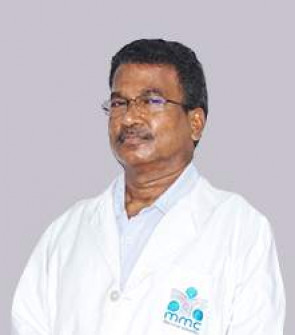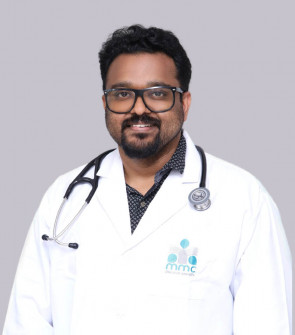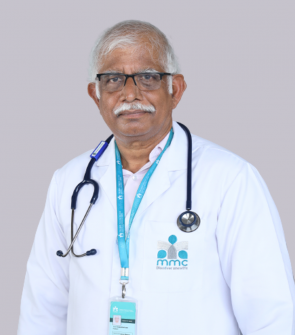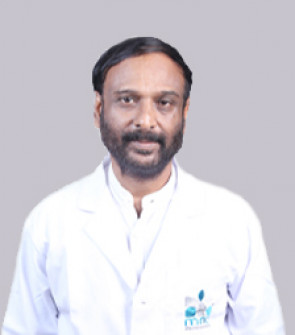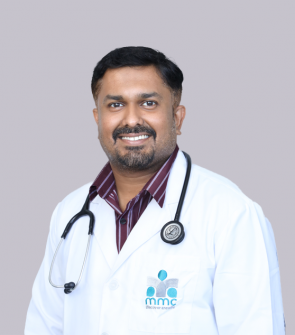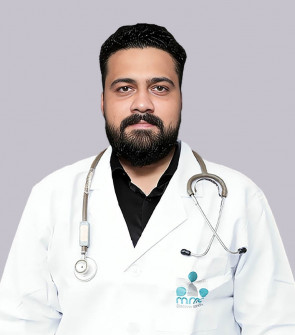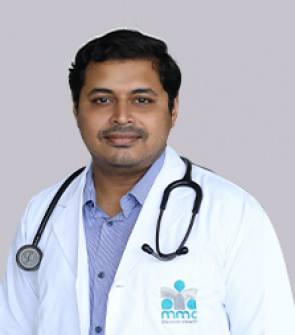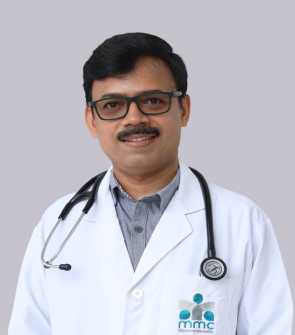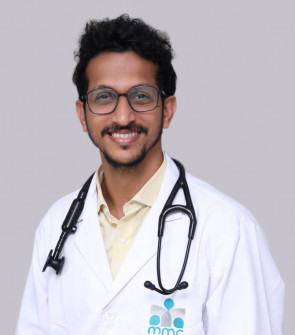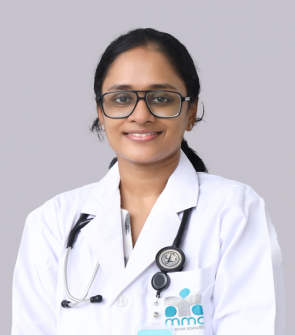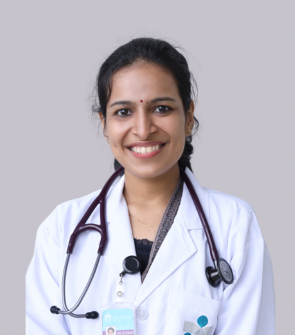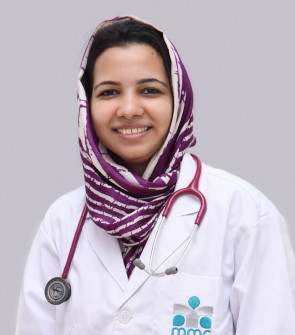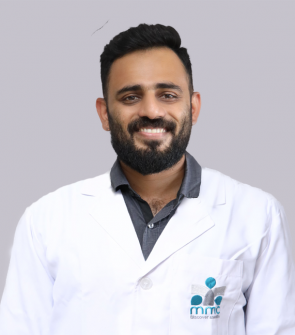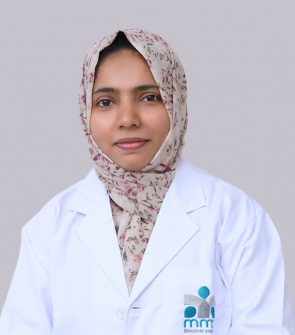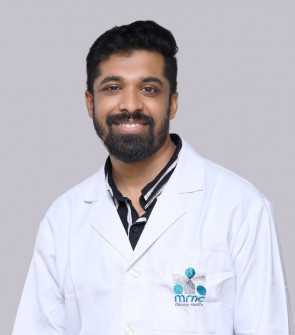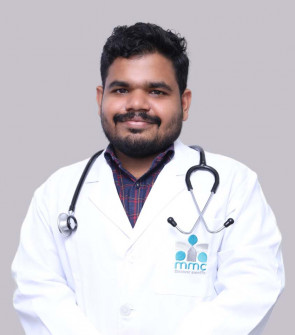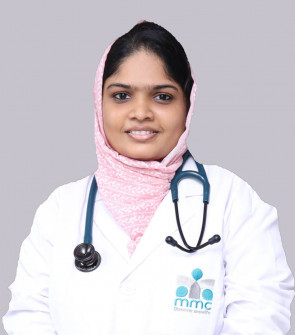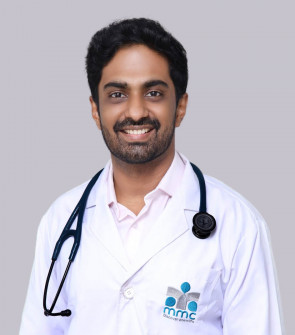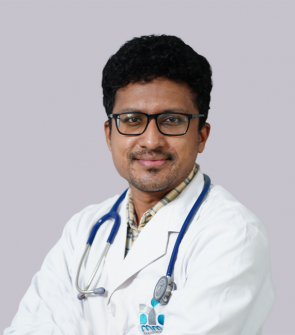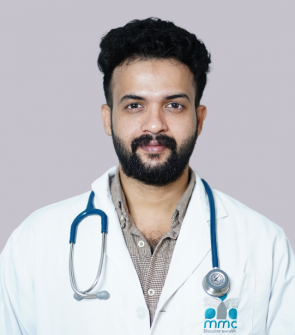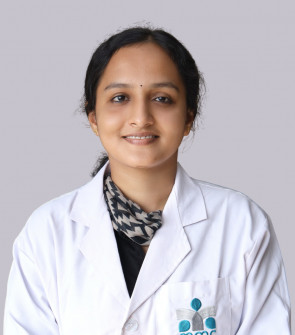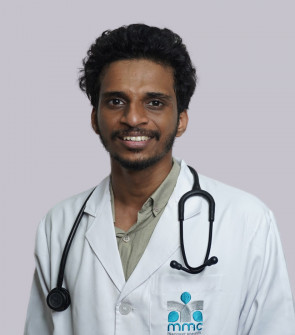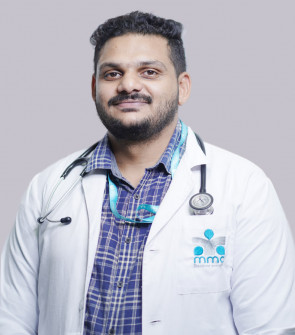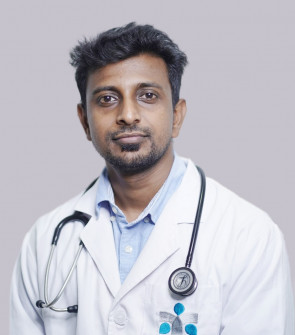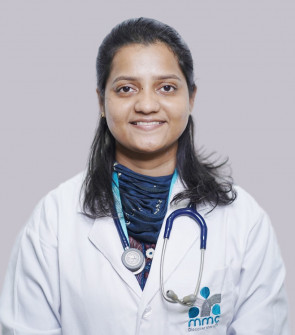
General Medicine
Doctors

About the Department
The Department of General Medicine at Malabar Medical College (MMC), Kozhikode, is one of the most robust and academically vibrant departments in the institution. It is committed to excellence in patient care, undergraduate and postgraduate medical education, and clinical research. The department plays a key role in shaping competent and compassionate physicians, while delivering high-quality, evidence-based care to patients across a wide spectrum of medical conditions.
The department is staffed by a dedicated team of Professors, Associate Professors, Assistant Professors, Senior Residents, and Junior Residents who bring rich clinical and teaching experience. The faculty is actively engaged in bedside teaching, didactic lectures, case-based discussions, clinical skills training, and assessment of both undergraduate (MBBS) and postgraduate (MD General Medicine) students.
For undergraduate students, the department follows the CBME (Competency-Based Medical Education) guidelines laid down by the National Medical Commission. Students from Phase 2 to Phase 3 Part 2 undergo structured clinical postings involving patient interactions, supervised case presentations, OSCE training, and regular theory sessions. Emphasis is placed on early clinical exposure, integration of basic sciences with clinical knowledge, and development of core clinical skills. Weekly tutorials, internal assessments, and end-posting evaluations are conducted to ensure consistent academic progress.
The postgraduate program (MD General Medicine) at MMC is designed to develop skilled internists with a strong foundation in clinical acumen, academic excellence, and ethical practice. PG trainees are exposed to a broad spectrum of medical cases through regular ward work, ICU postings, specialty clinics, and night duties. Academic activities include daily morning case discussions, journal clubs, seminar presentations, mortality and morbidity reviews, and interdepartmental meetings. Emphasis is also placed on research methodology, with PGs encouraged to publish in peer-reviewed journals and present at state and national conferences. Dissertation work is closely guided by experienced faculty to ensure meaningful clinical contributions.
The department has well-equipped medical wards, a dedicated high-dependency unit (HDU), and a state-of-the-art Medical ICU, providing advanced care for critically ill patients. Daily ward rounds are conducted by unit teams and senior faculty, ensuring optimal patient management and ongoing clinical teaching. Specialty clinics in diabetology, geriatrics, and hypertension are also run regularly, providing PGs with exposure to subspecialty care.
Regular CME programs, and guest lectures are organized by the department, . Faculty and postgraduate students actively participate in these events, enhancing continuous professional development.
The department fosters a collaborative environment, working closely with other specialties like cardiology, nephrology, pulmonology, neurology, and intensive care, enabling holistic patient care and interdisciplinary learning. It also contributes to community outreach through medical camps and awareness programs.
With its blend of clinical excellence, academic rigour, and research orientation, the Department of General Medicine at Malabar Medical College continues to be a cornerstone of the institution, committed to training the next generation of capable and compassionate physicians.
Clinical Focus
The Department of General Medicine at Malabar Medical College is a cornerstone of comprehensive patient care, undergraduate and postgraduate medical education, and clinical research. With a strong emphasis on evidence-based, patient centric care, the department handles a high volume of diverse medical cases ranging from acute infections to complex chronic diseases.
Clinical Services
The department provides 24/7 services through:
• Out patient Clinics (OPD) – Operating on all working days with an average daily footfall of 250+ patients.
• In patient Wards – 220 bedded units including male and female medical wards.
• Emergency Medicine Support – For acute medical, toxicological, and infectious emergencies.
• ICU Services – Department is actively involved in Medical ICU management with ventilatory and critical care support.
• Specialty Clinics:
◦ Diabetes and Endocrinology.
◦ Hypertension and Geriatric Medicine.
◦ Rheumatology.
◦ Neurology.
Diagnostic and Procedural Capabilities
The department is supported by a well-equipped central diagnostic laboratory and radiology unit. Key services include:
• POCUS (Point-of-Care Ultrasound) for bedside assessments (lung, pleura, IVC, FAST).
• ECG, 2D-ECHO, TMT for cardiac evaluation.
• Pulmonary Function Tests (PFTs) and ABG Analysis.
• Diagnostic and therapeutic procedures such as:
◦ Pleural tapping.
◦ Ascitic tapping.
◦ Lumbar puncture.
◦ Central venous access.
◦ Joint aspiration.
• Integration with Radiology for CT/MRI and Nephrology for hemodialysis.
Infrastructure
CLINICAL FACILITIES
OUTPATIENT DEPARTMENT (OPD)
Medicine OPD: Fully functional with efficient staff for smooth operations and high patient satisfaction.
Adequate consultation rooms with examination tables and privacy screens.
Basic diagnostic tools: BP apparatus, stethoscopes, weighing machines, pulse oxy meter, torch.
Electronic Medical Record (EMR) system for streamlined patient data management.
Waiting Area: Comfortable and spacious for bystanders, ensuring a patient-friendly environment.
Emergency and Critical Care Department: Equipped for triage and acute care, with rapid response capabilities.
INPATIENT WARDS
Separate male and female general medicine wards.
Dedicated isolation ward for infectious diseases.
Bedside available:
Oxygen and suction points.
Bedside lockers, stools, IV stands
Proper sanitation and infection control measures.
Nursing Stations: Strategically located for efficient patient monitoring and care delivery.
PALLIATIVE CARE WARD:
Specialized beds for terminally ill patients, equipped with infusion pumps and non-invasive monitoring devices for pain management and patient dignity.
MEDICAL INTENSIVE CARE UNIT (MICU/ICCU):
Beds with a 1:1 nurse-to-patient ratio, staffed by skilled intensivists.
Advanced medical/surgical techniques and monitoring tools, including ventilators, defibrillators, monitors, and arterial blood gas (ABG) machines etc.
HIGH DEPENDENCY UNIT (HDU):
Dedicated space for patients requiring intensive medical care but not at ICU level, with appropriate monitoring and support systems.
PROCEDURES
Routine invasive procedures performed by skilled specialists.
Endotracheal intubation.
Lumbar puncture with cerebrospinal fluid (CSF) analysis
Abdominal paracentesis with ascitic fluid examination.
Thoracentesis with pleural fluid analysis.
TEACHING AND ACADEMIC FACILITIES
DEMONSTRATION ROOMS & SEMINAR ROOMS:
Available for post graduate and undergraduate training with LCD projectors, whiteboards, and internet connectivity for departmental discussions, case presentations, and academic meetings.
Audio-visual (AV) aids and adequate lighting for effective teaching.
DEPARTMENTAL LIBRARY:
Well -stocked for academic and research purposes.
Supports academic learning, research, and postgraduate training.
SKILL LAB:
Manikins for CPR, IV access, basic life support (BLS), and advanced cardiac life support (ACLS) training.
Simulated patient examination setups for hands-on training of undergraduates and postgraduates.
FACULTY ROOMS:
Individual rooms for HOD, Professors, Associate Professors, and Assistant Professors.
Resident Doctors’ Duty Rooms.
Equipped with attached toilets and lockers for convenience.
LABORATORY AND DIAGNOSTICS SUPPORT:
Clinical Laboratory Supports Biochemistry, Hematology, and Microbiology testing.
DIAGNOSTIC FACILITIES:
ECG.X-ray, CT, MRI, and ultrasound etc. available.
PHARMACY:
Accessible for inpatient and outpatient medication needs.
Other Activities
In addition to its core responsibilities of patient care and academic teaching, the Department of General Medicine at Malabar Medical College is actively engaged in a variety of enriching, student centric, and community-focused activities. These initiatives promote holistic development, interdisciplinary learning, and institutional advancement.
• Quiz Competitions – Internal medicine quizzes and interdepartmental quiz programs to boost competitive learning.
• Logbook Review and Mentoring Sessions – Personalized mentoring and reflection-based learning to guide MBBS students in clinical postings.
• Weekly Journal Clubs & Seminars – Regular sessions for postgraduates and interns to stay updated with recent advances in internal medicine.
• Faculty Development Programs – Faculty participation in CBME training, AETCOM, research methodology workshops, and medical education technology (MET) programs.
• World Health Day / Diabetes Day – Public awareness events, free blood sugar check-up camps, patient education stalls, and health talks.
• Faculty and postgraduate students are actively involved in clinical research.
• Annual CME in General Medicine is organised by the department, attracting participation from multiple institutions.
• Use of Simulation and Skills Labs – For undergraduate teaching.







